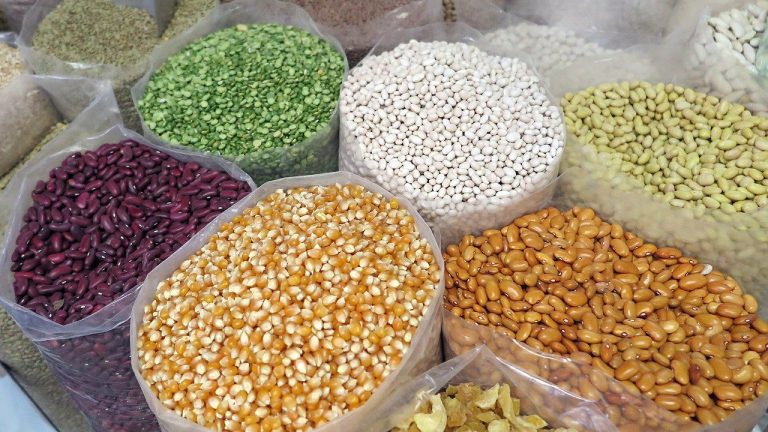A 2017 report by the U.S. Commission on the Theft of American Intellectual Property (IP Commission) called China “the world’s principal IP infringer” and estimated that the American economy loses up to 600 billion dollars annually from IP theft. In 2020, FBI Director Christopher Wray revealed that economic espionage cases linked to China shot up by around 1,300 percent over the past decade.
One area in which China consistently targets America is in the field of agriculture. Over the past 10 years, Chinese theft of American agricultural trade secrets has been rampant.
Seed theft and agritech
Mo Hailong
In 2011, Mo Hailong, the U.S. director of international business for the Chinese agricultural company Dabeinong Technology Group (DBN), was spotted crawling through corn rows in Iowa, picking up corn seeds. A farmer who spotted him notified the authorities, and the FBI began tracking Mo Hailong’s activities.
The agency found that Mo Hailong had been mailing expensive seeds to one of his relatives in China. Mo Hailong and a few of his associates were arrested in 2013 while attempting to board a plane to China. In their luggage, hundreds of seed samples were hidden beneath Subway napkins and popcorn bags.
Success
You are now signed up for our newsletter
Success
Check your email to complete sign up
During his time in the United States, Mo Hailong was in contact with his sister, Mo Yun, who is the wife of DBN Chair Shao Genhuo. Mo Yun headed DBN’s research and technology division in Beijing, and was in charge of overseeing the company’s seed breeding operations.
“The germplasm, or genetic makeup, of corn lines is a valuable form of intellectual property and is carefully guarded by seed companies. Through extensive research, breeders develop inbred seed lines that have particular traits. They can then be crossbred with other inbred lines to create hybrid lines that are sold to farmers,” according to ScienceMag.
Mo Yun allegedly participated behind the scenes and was in charge of determining the germplasm of the stolen seed lines. Intelligence officials intercepted chat messages between Mo Yun and her brother Mo Hailong, in which they discussed which seeds to steal from America. Mo Yun said that she had tasked a DBN scientist with testing the DNA of the most promising seed lines.
Mo Hailong and his associates stole seed lines from companies such as DuPont Pioneer, LG Seeds, and Monsanto. In 2018, Mo Hailong was sentenced to 36 months in prison.
Wieqiang Zhang and Wengui Yan
In 2013, two agricultural scientists were charged with attempting to steal seed samples from a biopharmaceutical company’s research facility in Kansas. The accused, Wieqiang Zhang and Wengui Yan, are natives from China, according to an FBI press release. Zhang worked at the biopharmaceutical company Ventria Bioscience as an agricultural seed breeder, while Yan was a rice geneticist at the Dale Bumpers National Rice Research Center.
In 2012, Zhang and Yan traveled to China to visit Crops Research Institute, part of the Chinese Academy of Agricultural Science (CAAS) and a People’s Republic of China (PRC) State Key Lab. An institute designated as a State Key Lab receives funding from the Chinese Communist Party (CCP).
In 2013, the pair arranged for a Chinese delegation to visit the United States, including people they met on their trip to China. When the delegation visited the U.S. between Jul. 16 and Aug. 7, Zhang and Yan gave the visitors the stolen seeds. On Aug. 7, U.S. Customs and Border Protection (CBP) discovered the stolen seeds in the delegation’s luggage as they attempted to return to China.
Authorities found seed samples in Zhang’s residence, which matched samples carried by the delegation. “The victim in the case—identified in court records as Company A—has invested approximately $75 million in patented technology used to create a variety of seeds containing recombinant proteins. The company has an extensive intellectual property portfolio of more than 100 issued and pending patents and exclusive licenses to issued patents,” the press release said.
In 2018, Zhang was sentenced to 10 years in prison. Yan, who pleaded guilty, was given a one-year prison term.
Haitao Xiang
In 2019, Haitao Xiang was indicted on economic espionage charges. Between 2008 and 2017, Xiang was employed at Monsanto and its subsidiary, The Climate Corporation, where he worked as an imaging scientist.
The companies had developed an online farming software platform allowing farmers to collect, store, and visualize agricultural field data, thus improving productivity. A key aspect of the program was a predictive algorithm called the Nutrient Optimizer, which both companies considered a valuable trade secret, according to a Department of Justice press release.
“Xiang promoted himself to the Chinese government based on his experience at Monsanto. Within a year of being selected as a Talent Plan recruit, he quit his job, bought a one-way ticket to China, and was caught at the airport with a copy of the company’s proprietary algorithm before he could spirit it away,” Assistant Attorney General for National Security John C. Demers stated. He added that the indictment was an example of Beijing using its Talent Plans to encourage employees at U.S. firms to steal intellectual property.
Bill to protect U.S. agriculture
To protect the American agricultural industry from Chinese espionage, Republican senators Tom Cotton from Arkansas and Joni Ernst from Iowa introduced the “Agriculture Intelligence Measures (AIM) Act” in April 2021. The bill seeks to establish an Office of Intelligence within the U.S. Department of Agriculture, which would oversee threats from foreign nations, including China.
“For too long, countries like China have taken advantage of Iowa farmers—stealing intellectual property and engaging in other nefarious activities. This bill will help protect our agriculture community in Iowa, and across the country, so they can continue their hard work of feeding and fueling the world,” Ernst said in a statement.
In 2015, Beijing had introduced the Made in China 2025 initiative aimed at making China a world leader in several sectors, including agriculture.
















